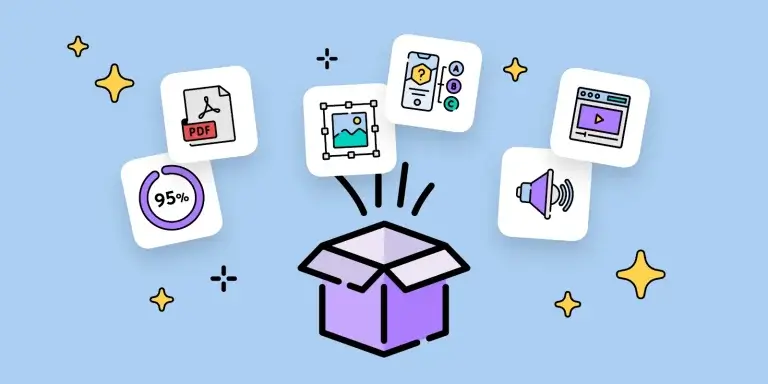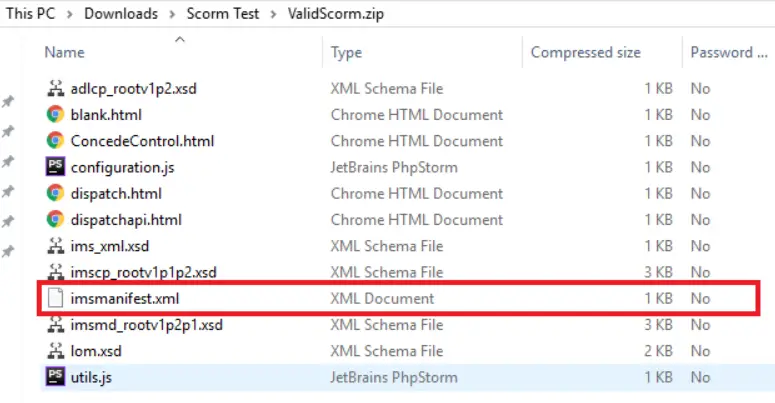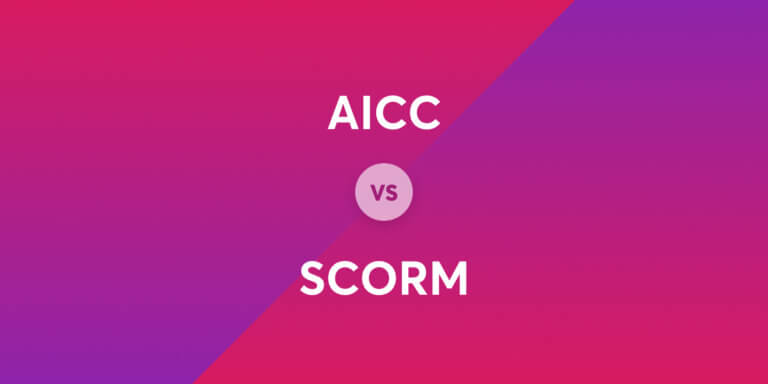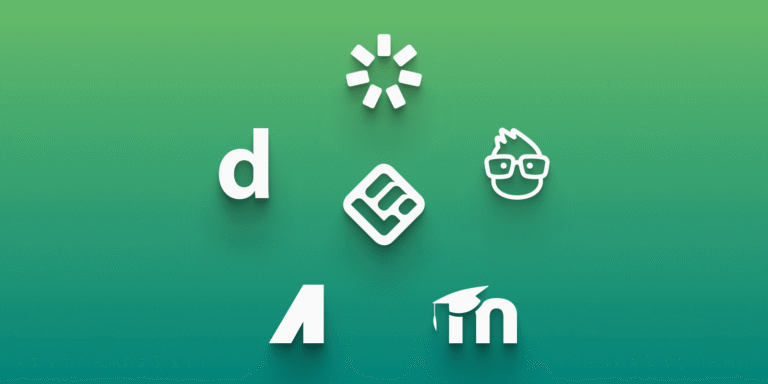Table of Contents
This comprehensive guide will explore everything there is to know about SCORM files and packaging. You’ll learn the difference between key terms like SCORM compliant and SCORM certified, compatibility with different elearning software and Learning Management Systems (LMS), how to create SCORM courses, and the benefits.
Let’s take it from the beginning.
What is SCORM?
SCORM stands for Shareable Content Object Reference Model. It’s a collection of technical standards for elearning courses and learning management systems that support it, ensuring compatibility across platforms. These technical specifications help build a file similar to a zipped file with multiple files inside, written in a specific language that a scorm-compliant LMS understands.
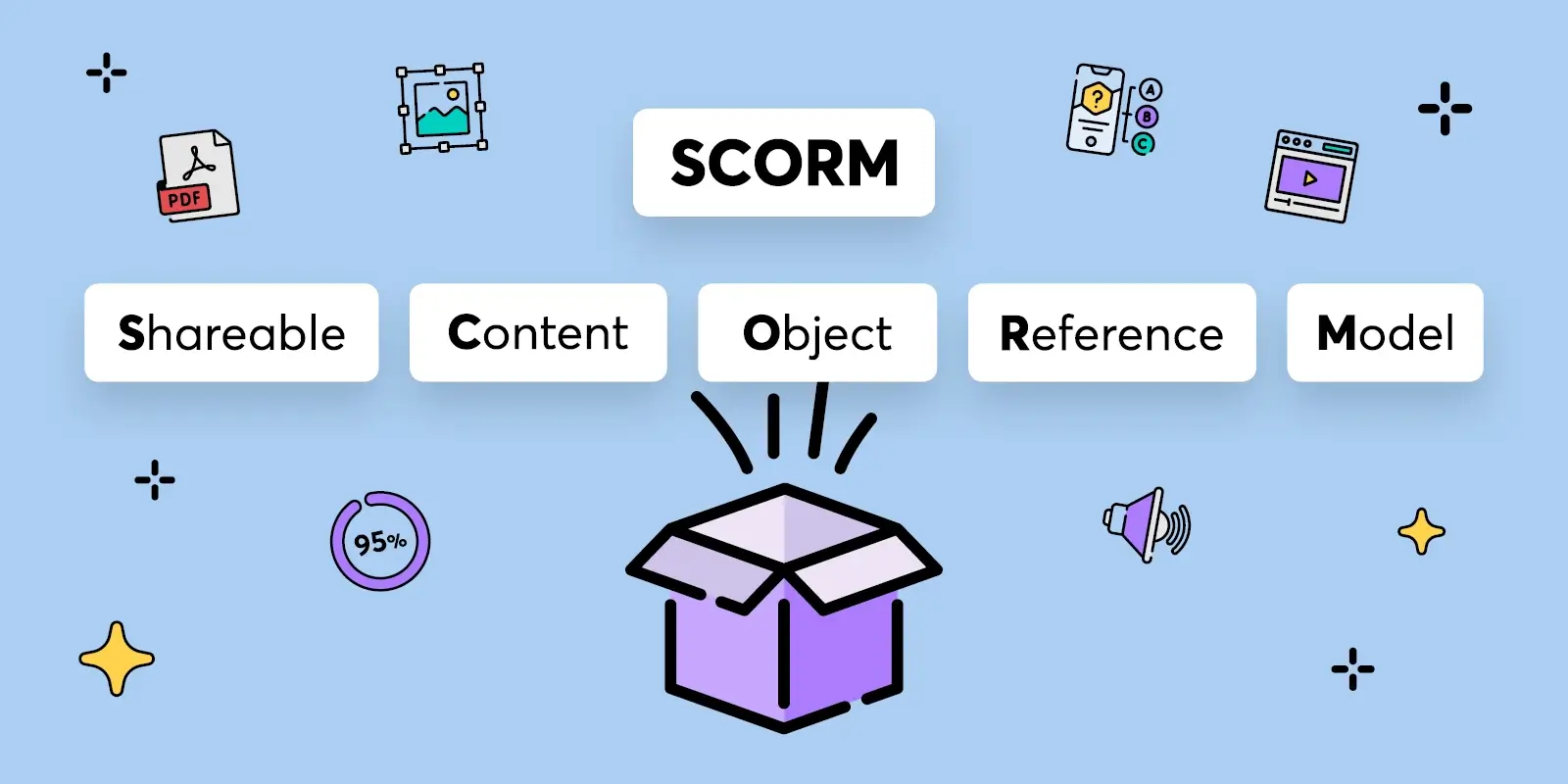
For instance, if a company purchases a compliance course by a freelance instructional designer, the course will probably come in the SCORM format. The elearning admin will then be able to upload the file to the learning management system, which will work smoothly.
Having a set of standards allows for communication between systems, and the same course should work across most LMSs without a problem. This way, a company can change LMS but keep their course material and easily migrate their existing content to the new platform.
💡SCORM standards facilitate the communication between elearning authoring tools and Learning Management Systems.
What is a SCORM file?
It’s a type of file used in online learning to make courses work in different LMSs. It’s like a zip folder with all the elements of your online course (videos, quizzes, text) packed together and rules for how the course should communicate with the LMS, like tracking progress, quiz scores, and completion status.
Below, you’ll find more SCORM-related terms you need to know.
SCORM package structure and content
A SCORM package is essentially a zipped file that encapsulates all the necessary components of an eLearning course. At the heart of this package is the manifest file, which outlines the course structure and content.
This file acts as a roadmap, guiding the LMS on how to import and launch the course. Alongside the imsmanifest.xml file, the package includes a content folder that houses the actual course materials, such as images and multimedia elements.
Its self-contained nature ensures that it can be easily imported and launched in any SCORM conformant LMS, providing a seamless learning experience.
SCORM compliance
When an LMS is SCORM compliant, it can read and deliver the course content inside a SCORM package. There are different levels of compliance, as some LMSs can only read and deliver the course but do not track attendance and scores or save the learner’s progress.
SCORM certified
Not to be confused with compliance. A SCORM-certified course has passed and was certified by ADL, the organization behind the SCORM standard.
What are the benefits of SCORM?
The SCORM format has many advantages, which is why SCORM governs the elearning industry.
Here are the most important benefits of SCORM in elearning:
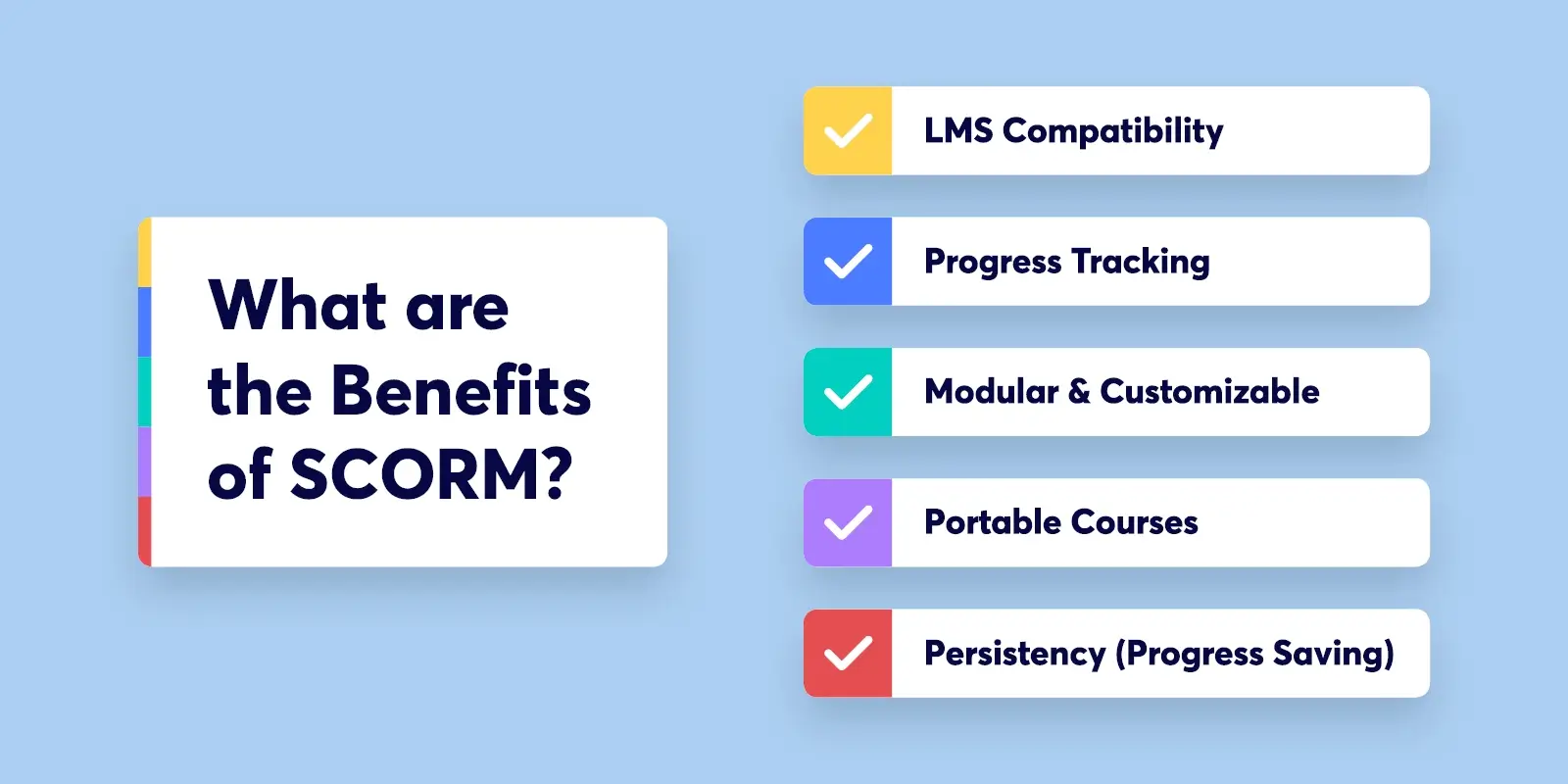
LMS compatibility (interoperability)
Most LMSs are partially or fully SCORM compliant. This makes it easier to create elearning content or an entire course that can be used across various systems.
Progress tracking
It allows you to track the learner’s progress in a standardized way and feeds it back to the LMS for reporting.
Interactive elements
SCORM allows you to add interactive content like assessments and animations to your course, making it more engaging and effective.
Modular & customizable
SCORM is highly customizable and can be designed to offer modular courses as well. You can build a complete interactive course or microlearning activities using only SCORM lessons.
Portable courses
This is one of the most significant advantages. As a widely recognized and used standard, SCORM allows the transfer of online learning content when migrating to a new LMS.
Persistency (progress saving)
The way SCORM is built allows the learner to continue their learning journey where they left off. Not all LMSs support persistency, but if they do, it is a powerful advantage for the learning experience.
What is tracked in a SCORM?
LearnWorlds is a scorm-compliant learning management system able to track all of the above. You can get a 30-day trial and try it yourself.
How does SCORM work?
All SCORM formats work based on two principles: content packaging and data exchange.
SCORM architecture and communication
The architecture of SCORM is built on a client-server model, where the eLearning content (client) interacts with the LMS (server) through a set of predefined APIs. This interaction is facilitated by the SCORM API, which allows the content to send data to the LMS, such as progress and scores, and receive data from the LMS, such as learner information and course settings.
This two-way communication is crucial for tracking learner activity and ensuring a cohesive learning experience. Elearning content dynamically interacts with the LMS when leveraging the SCORM API, to provide real-time updates and personalized learning paths.
SCORM versions
The most commonly available and supported versions in the market right now are:
There are other elearning standards like xAPI (Tin Can), cmi5, and AICC for more advanced capabilities. Unfortunately, both are more demanding, and few LMSs support these formats, usually at an additional cost.
💁Compare SCORM 1.2 vs. SCORM 2004
💁Compare SCORM Vs. xAPI
How can I create a SCORM file? An easy-to-follow example
Creating a SCORM file—and therefore a SCORM compliant course— is now easier than ever.
Elearning software products make it incredibly easy to create the file quickly and export learning material.
Step one: First, choose one of these three types of tools:
💁Take a look and choose the best scorm compliant authoring tool for your needs.
Step two: Create your content, like ebooks (limited tracking capability), videos, podcasts (embedded), and quizzes.
Step three: Go to the export or publish settings and choose SCORM 1.2 or SCORM 2004 as the format. SCORM may not support simulations. In this case, you need to use an export with Tin Can API that supports more advanced modules.
Step four: Set completion criteria. That’s totally up to you. It can be passing a quiz or simply viewing all course videos.
Step five: Export the elearning course, and the tool will generate a SCORM ready for upload to an LMS. Congrats, your scorm course is ready.
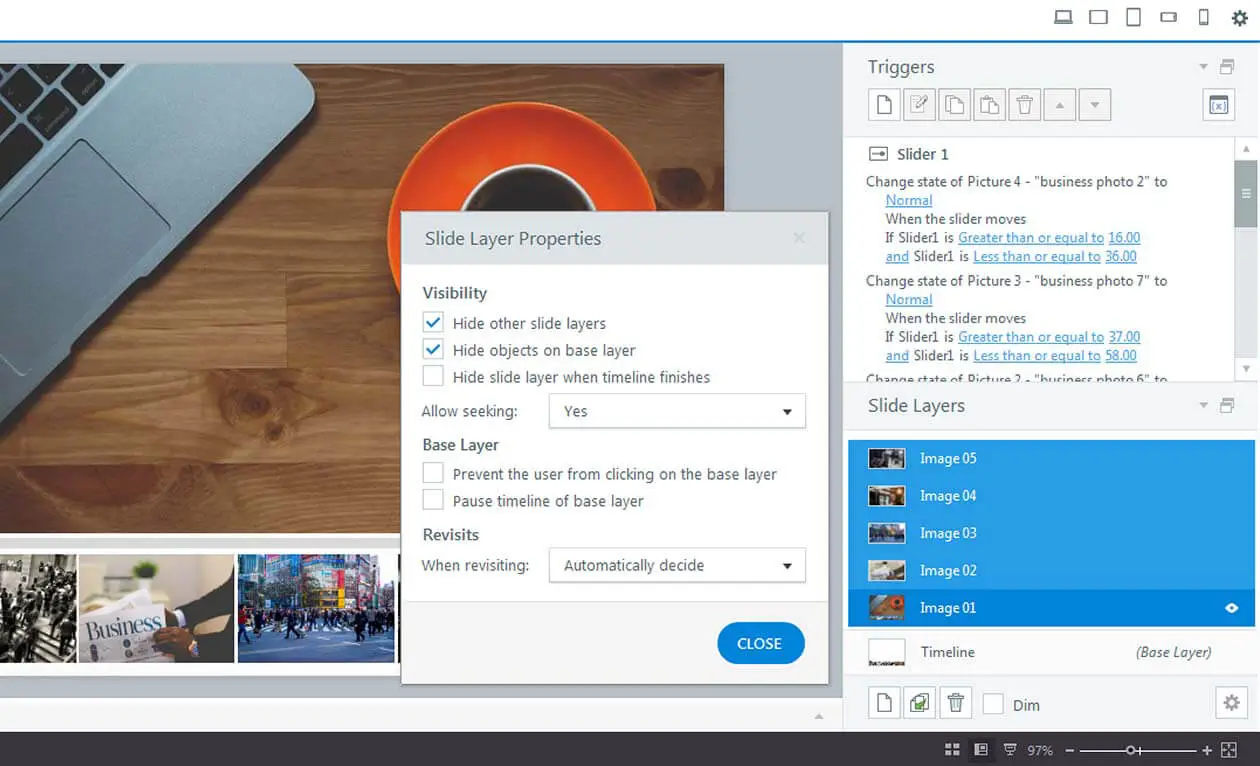
SCORM compliance testing: tools and methods
How can you ensure your SCORM packages meet standards and work well with your LMS? Let’s go over some popular tools and methods.
Here’s how to perform your scorm conformance check:
How can I effectively use SCORM in my elearning project?
So, what should a SCORM compliant ourse look like? Keep the following seven tips in mind to create courses that engage learners and will help them meet the course’s learning objectives.
1. Choose your SCORM version
Choose SCORM 1.2 for basic tracking and broad compatibility or SCORM 2004 (4th Edition) for detailed tracking and sequencing.
2. Choose your authoring tool
Choose a scorm compliant authoring tool like Articulate Storyline, Adobe Captivate, iSpring, or Lectora to simplify SCORM packaging.
3. Create engaging and interactive content
Add quizzes, simulations, and interactive elements to improve learner engagement.
4. Optimize for better performance
By compressing media files (videos, images) to reduce loading times and using responsive design to ensure the content plays well on mobile devices.
5. Implement tracking and reporting
Set clear completion criteria (e.g., finishing a video, passing a quiz) and use SCORM’s bookmarking feature so learners can resume where they left off.
6. Test before deploying the course
Use SCORM Cloud or your LMS’s test mode to ensure compatibility.
7. Maintain accessibility and compliance
Follow WCAG guidelines for accessibility and use captions, transcripts, and alt text to support all learners.
How to add SCORM to LearnWorlds
To import a SCORM to LearnWorlds, you need to create a SCORM learning activity and upload the file. Here is the step-by-step process:
Create a SCORM activity:

Upload your SCORMs:

Example of SCORM on LearnWorlds
Here is an example of how SCORM content will play inside the LearnWorlds course player. On the left is the standard player navigation. On the right, a SCORM course is loaded.
Below is an example from Sendinblue Academy’s Certification for Marketing Automation, using multiple SCORM modules to deliver their online training.
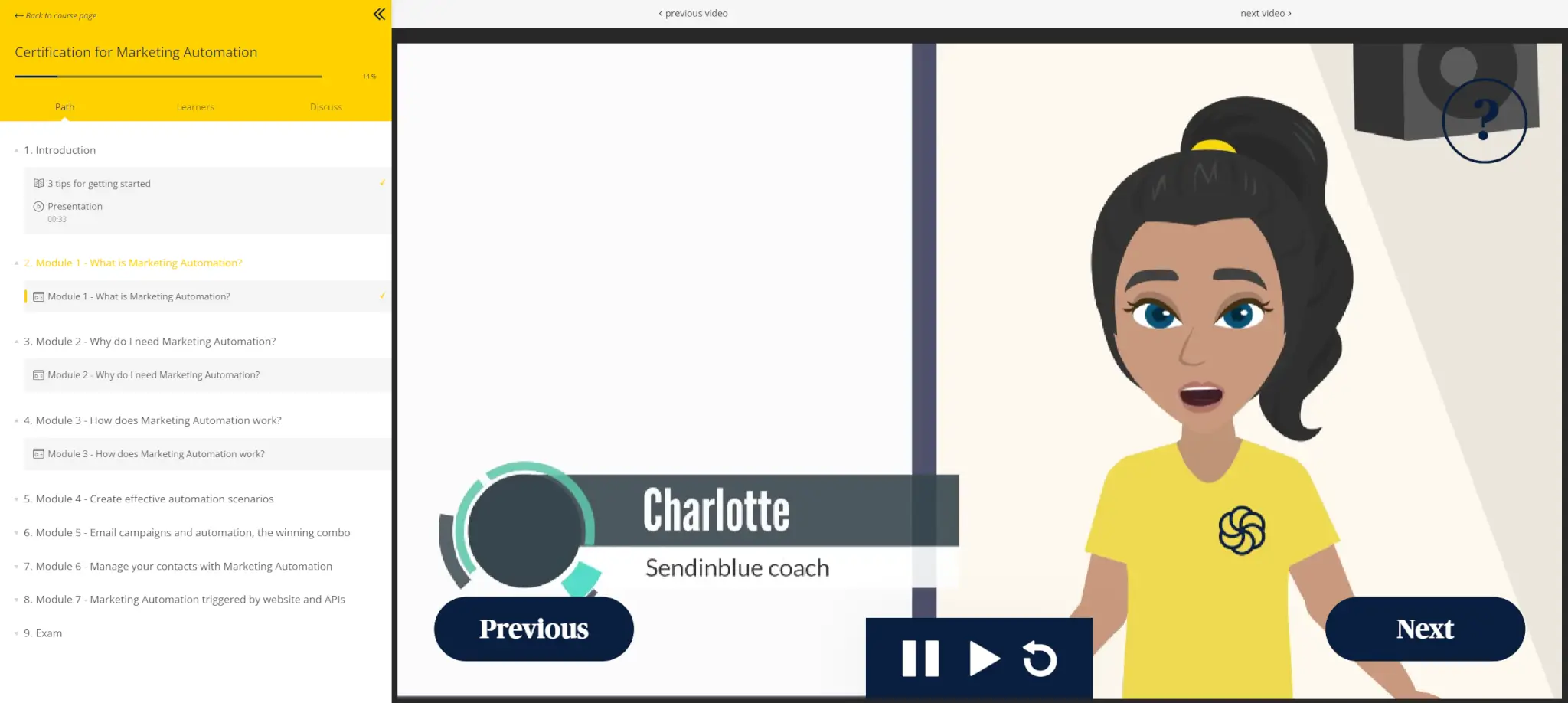
The future of online learning
Most elearning professionals use SCORM, as it is supported by most LMSs and allows you to build advanced learning activities. At the same time, LMS vendors have evolved, and many offer their own authoring tools or support newer standards, such as AICC or TinCan API.
There are many advantages to building a course inside your LMS. For example, if your course is video-based, you might not even need a SCORM. The downside of using the authoring capabilities of your LMS is that you may have trouble migrating the content to another LMS in the future.
This is why it’s essential to review your requirements and the capabilities of the LMS before choosing how to create your course.
Are you looking for a modern, SCORM-compliant LMS? LearnWorlds can help you take the learning experience and learner management to the next level. Try LearnWorlds with a 30-day trial.

Androniki Koumadoraki
Androniki is a Content Writer at LearnWorlds sharing Instructional Design and marketing tips. With solid experience in B2B writing and technical translation, she is passionate about learning and spreading knowledge. She is also an aspiring yogi, a book nerd, and a talented transponster.
FAQ
Everything you have ever wondered, but were too afraid to ask...
Option 1 - use an LMS: Go to your LMS, upload the SCORM zip, set tracking options, and share the course link.
Option 2 - use SCORM Cloud: Upload the file to SCORM Cloud, generate a public link, and share it.
Option 3 - host as HTML5: Unzip the file, upload the contents to a web server, and share the link to the main HTML file (no tracking available this way).

